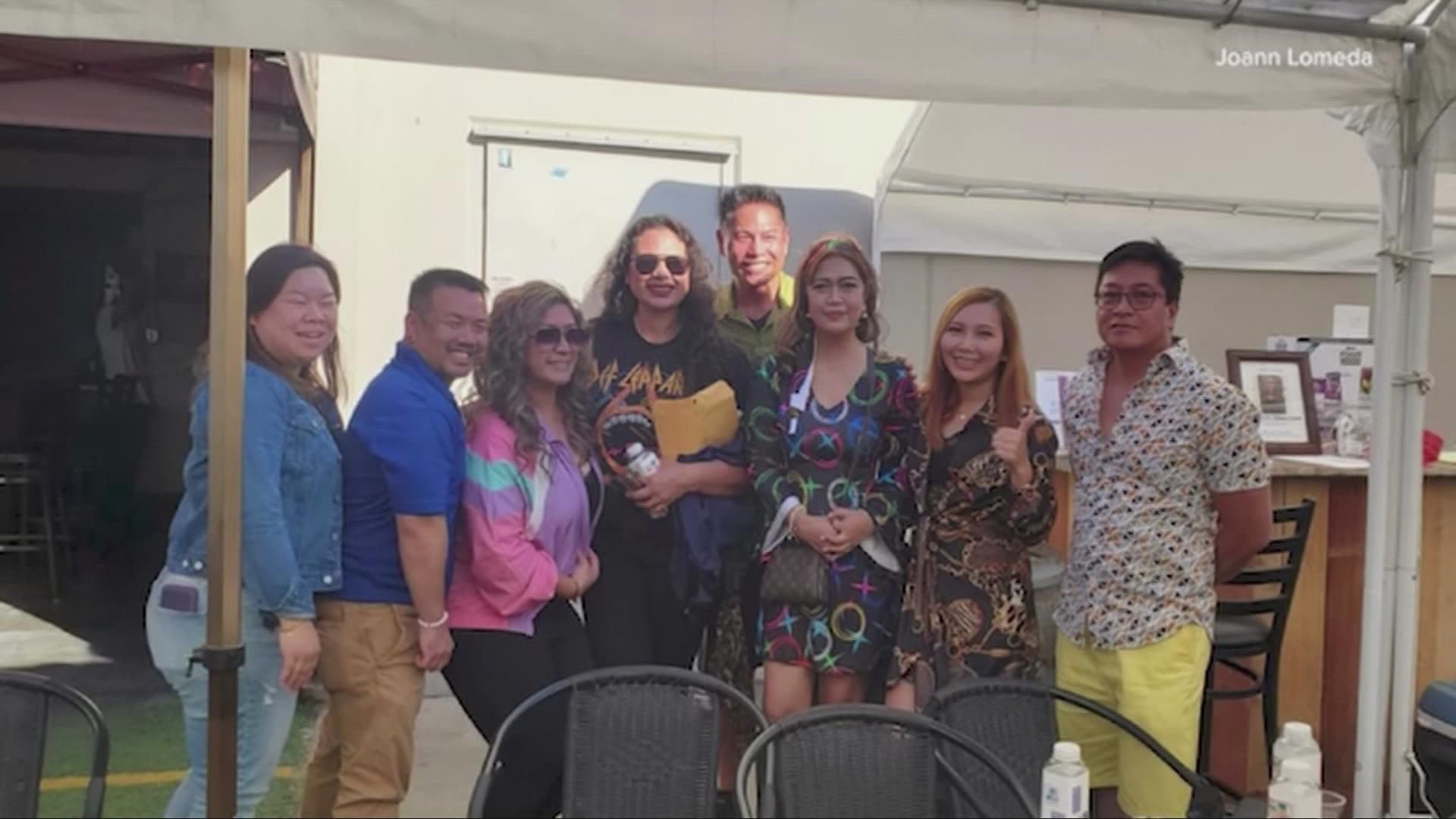SACRAMENTO, Calif. — In Sacramento, firmly established restaurants serving lumpia and adobo and grocery staples like Seafood City Supermarket hint at the capital city's thriving Filipino community. For many who put down their roots here decades ago, that wasn't always the case.
"I remember going to school and obviously realizing how I look is different, what I'm eating is different just from our cultural foods," said Shane Gitmed, who identifies as Filipina and has lived in Elk Grove for most of her life. "Elk Grove was nothing but farmland so we got to see it developed and see the evolution of what our city is now."
Now, Gitmed says annual cultural events highlighting Filipino culture and grocery stores like Seafood City have brought a stronger sense of community.
Edlynn Cardenas, who came to Sacramento from Hawai'i with her family in the 1980s, agrees.
"It's amazing to see we have our grocery store now and also the Filipino restaurants like South Villa," said Cardenas. "It's very important for us to continue our Filipino culture and heritage and the traditions that we have. (Before), I was really only exposed through my parents and grandparents."
Still, community members say there's a crucial resource missing in Sacramento -- a Filipino community center. The Filipino Community of Sacramento and Vicinity (FCSV) is working to change that.
FCSV was born in 1929 as a social club for weekend dancing and monthly picnics, according to the nonprofit's website. Over the years, as more Filipinos migrated to California, FCSV evolved and in 2014, became a registered nonprofit organization.
The organization's efforts to build a community gathering place aren't new. In 1973, under the presidency of Dolores Pizzaro, FCSV purchased a two-acre lot near what is now known as the Jose Rizal Community Center. In 1984, members tried building "Manila Square," named after the thriving capital of the Philippines, but were met with financing challenges. Now, they hope to turn that lot into the community center, but they still need the funds.
Members hope once the center is built, it will be a hub for everything from Tagalog language and cultural cooking classes to a museum and library displaying Filipino history. You can read more about their goals HERE.
"Having a place of our own will also just show, especially for the overseas Filipino workers, this is also for them and those that come here to work and support their families back in their home country," said Gitmed.
One of the nonprofit's largest annual fundraising events for the community center includes the Mrs. Philippines Popularity Contest. This year, Gitmed is one of four candidates aiming for the title. You can see all four candidates HERE and support them and make donations for the community center through the website's contact page. The candidate who raises the most money for the Filipino community center will take the title of 2022-2023 Mrs. Philippines.
Community members say the community center will bring more belonging.
It's something Joann Lomeda, a realtor, knows is important. For three years, she's been helping Filipino families find their perfect homes in Sacramento.
"I came here in the U.S. when I was very young, and being surrounded by Filipinos keeps me grounded to the roots that I have and gives me a vibrant feeling that I didn't leave home," said Lomeda.
She believes the center, once it's built, will be able to offer that same feeling of "home" to the Filipino community and also encourage other communities to learn more about their culture.
"This center will be a platform to share our culture not just within us Filipinos but with everyone in the community," said Lomeda. "Filipinos are very welcoming and hospitable, we have so much to give and contribute, and once the community center is built, I want everyone in our community to feel and experience that."
At the heart of it all, community members say they hope the center will be a place where culture and traditions can be learned and passed down to the future generations.
"My kids are second-generation born here and they're bi-racial so it's important for them to know... that there is a place where they can learn about Filipino culture aside from being immersed from me," said Cardenas.
"Now that I'm a mom, I want my son to feel connected... and this is for the kids that are going to grow up and need these types of resources," said Gitmed. "I know if we have this center, it'll serve our community in a way that it goes into our past, our present and our future."

















